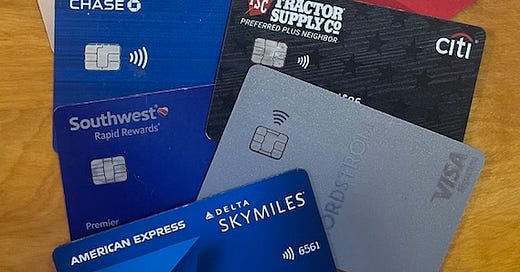Fraud Alert: Car shoppers, home buyers, hospital patients
Secret Service agent offers identify theft prevention tips
Learn from my (avoidable) drama.
After I went into the hospital for a few days, I came home to nearly a dozen new credit cards in the mailbox. In my name with thousands of dollars in unauthorized charges.
I never applied for these credit cards.
When I reached out to law enforcement, I was told to immediately freeze my credit through Experian, TransUnion or Equifax so that no one (not even me) could open a new credit card without going through a series of safety protocols.
I called to shut down everything that had been opened, and I challenged charges on cards for Walmart and other stores I didn’t shop.
Federal agents told me that people face the greatest risk of identity theft when they take out a car loan, take out a home loan or go into the hospital.
Anyone planning to do any of these things, I was told, should freeze their credit.
So, be warned.
Why the risk? Because so many people have access to personal information required to open credit card accounts that it’s nearly impossible to track down the criminal.
Doug Zloto, special agent in charge of the Detroit Field Office of the U.S. Secret Service, told me that hospital patients, homebuyers and car buyers should be smart about protecting themselves.
These days, small actions can protect consumers in ways that police cannot.
From paper to plastic to bytes
And while many crime victims think to call the local police, it’s the U.S. Secret Service that investigates all financial crimes — starting with paper (counterfeit money, stolen checks) and plastic (credit card fraud) and now including bits and bytes (computer-related fraud).
“When you provide your full name, Social Security number, date of birth, current address, next of kin, mother’s maiden name — all that information that they’re collecting, if it’s not secured properly, it becomes a treasure trove and easy access point for the bad guy,” Zloto said.

Back in the day, companies used to toss paperwork containing personal information into an open dumpster. Now everything is electronic, so sometimes companies have no idea they’re the victims of malware or hacking.
“You could be buying a car and providing the car salesman what he or she needs, then a couple days later you get calls about opening up credit cards,” Zloto said. “The business may not even know what’s happened right away. A lot of times, it’s not necessarily an employee but some bad guy sitting in a foreign country getting into the (computer) system.”
But financial crime is often local, too, and Zloto advises everyone to be on high alert.
How to shut down access to your accounts
People should go to annualcreditreport.com and order for free their credit report, then review it carefully, Zloto said.
Note: I prefer using creditkarma.com, a free service that lists all credit activity associated with your name that can be monitored every single day. You pay a bill, it’s recorded. Credit card balances and payments are updated. Every financial detail is there for you to see in real time. If there’s a card you don’t use listed under your name, you’ll see it.
What’s terrifying to me is the list of data breaches listed on the monitoring site that shows which companies with your information have been breached and what was obtained about you (such as a specific email and password).
Anyone who notices a credit report has been run without permission should follow up and ask why, Zloto said. That can signal fraud attempts. Credit monitoring should be done weekly, not yearly, he said.
‘Criminals are like water’
Putting a fraud alert on your account, which costs nothing, can prevent headaches, Zloto said. “These criminals are like water. They take the easiest route.”
While car buying has definitely led to fraud issues, the biggest issue lately involves mortgage companies and title companies, he said. “It’s steady. And I’m not sure the public even knows to contact the Secret Service.”
Avoid 12345
Strong passwords are essential and too often dismissed, Zloto said. “We still get people who put ‘12345’ as a password. Here at the Secret Service, we have to change our passwords every 30 days. You want to just scream but you can’t, knowing how important it is to safeguard information stored on the computer system.”
Finally, multi-factor authentication is really important for cases like logging into bank accounts — so you know when someone is going in, he said.
“It’s more than just monitoring your monthly credit card accounts and bank statements. I’m talking about something that may be as simple as a recurring Netflix account,” Zloto said. “Make yourself a more difficult victim.”
PS: As a former reporter at The Des Moines Register and a guest lecturer at the annual Okoboji Writers Retreat in Iowa, I’m grateful to be part of the Iowa Writers Collaborative. See below for writing on politics, policy, lawsuits and life.






Every "Consumer" should lock down their credit history -- it should be a Federal Law. I seem to get notified two or three times a year that my personal info has been compromised. I locked my credit down 8 years ago.
My Facebook acct got hacked/hijacked. I'll spare you the details (I exhausted myself trying to restore it.) Apparently 4 different fake FB accts now exist based in 4 different places around the globe. I've tried to set up a NEW FB acct..."Timothy Grover"...but having problems getting that done too. Signing up with credit reporting services is a great idea. Thanks Phoebe, sorry i didn't meet you at OWR.